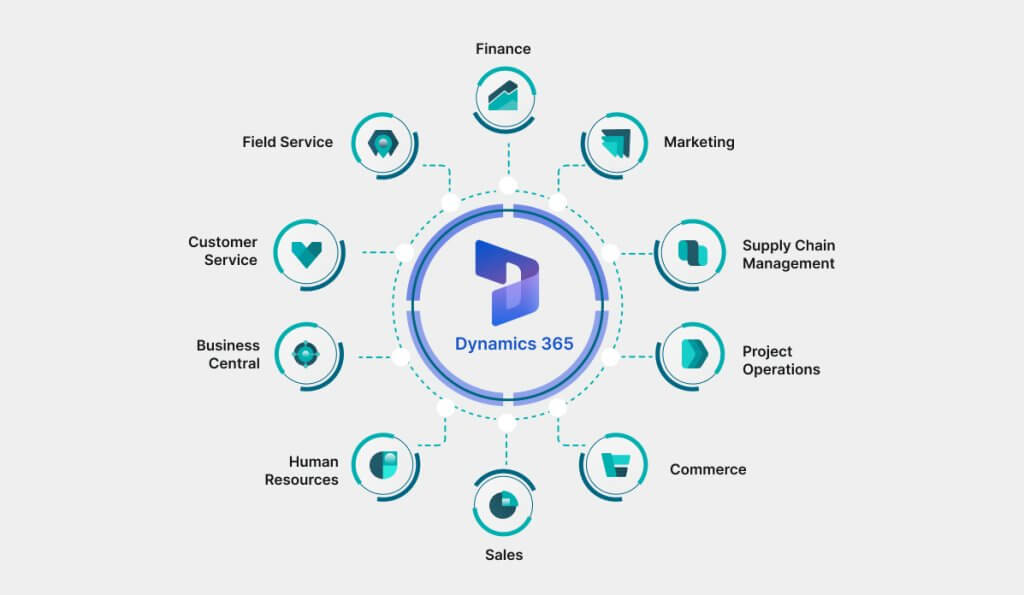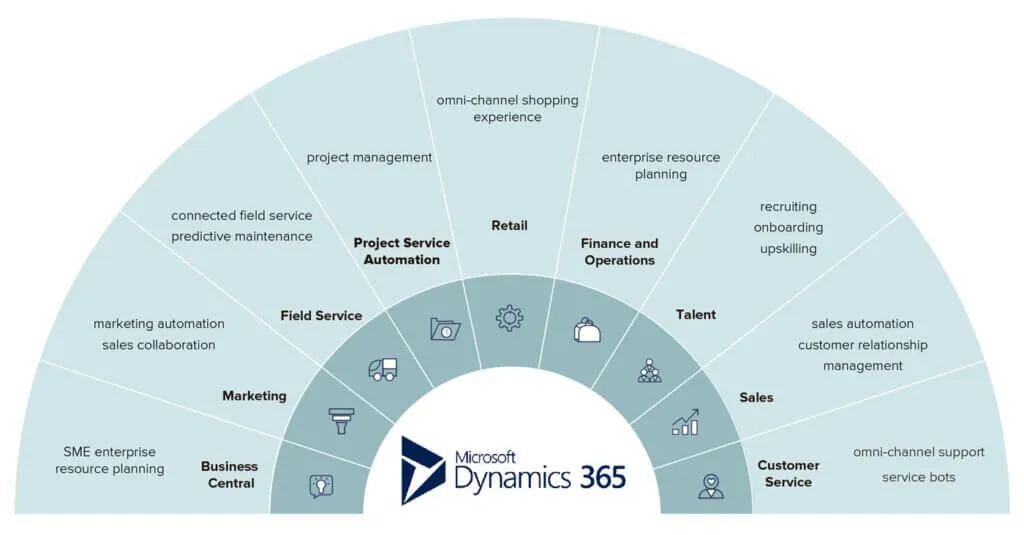Use of Microsoft D365
- Home
- Use of Microsoft D365
What Is Microsoft D365 ?
Microsoft Dynamics 365 (D365) is a cloud-based suite of enterprise resource planning (ERP) and customer relationship management (CRM) applications. It integrates various business functions such as sales, marketing, finance, operations, and customer service into a single platform. D365 offers scalability, flexibility, and real-time insights, empowering businesses to streamline processes, enhance productivity, and deliver personalized customer experiences. With modules tailored to specific industries and customizable features, D365 provides a comprehensive solution for organizations of all sizes to optimize operations, drive growth, and adapt to evolving market demands in today’s digital landscape.
why should we use it ?
There are several compelling reasons to consider using Microsoft Dynamics 365:
- Integration: It seamlessly integrates various business processes into a single platform, eliminating the need for multiple disparate systems and improving data accuracy and accessibility.
- Scalability: Dynamics 365 can scale with your business as it grows, providing flexibility and adaptability to meet evolving needs and requirements.
- Real-time insights: It offers powerful analytics and reporting capabilities, providing actionable insights into your business performance and customer behavior in real-time.
- Personalization: With its customizable features and modules, Dynamics 365 allows you to tailor the system to fit your unique business processes and requirements.
- Cloud-based: Being cloud-based, it offers the benefits of accessibility, security, and automatic updates without the need for on-premises infrastructure.
- Enhanced productivity: By automating repetitive tasks and streamlining processes, Dynamics 365 helps improve productivity and efficiency across your organization.

Benefits of Using It !
Using Microsoft Dynamics 365 offers several benefits for businesses:
- Enhanced efficiency: Streamlines business processes, automates repetitive tasks, and reduces manual data entry, leading to improved productivity and time savings.
- Improved decision-making: Provides real-time insights and analytics, enabling informed decision-making based on accurate data and trends.
- Better customer relationships: Centralizes customer data, facilitates personalized interactions, and enables timely responses to customer needs, leading to enhanced satisfaction and loyalty.
- Scalability: Adapts to the changing needs of businesses, allowing for seamless expansion and growth without significant disruptions.
- Cost-effectiveness: Eliminates the need for multiple disparate systems and reduces IT infrastructure costs by leveraging cloud-based solutions.
- Agility: Enables businesses to quickly adapt to market changes, customer demands, and industry trends, maintaining a competitive edge.
- Integration: Integrates with other Microsoft tools and applications, such as Office 365 and Power Platform, for a seamless user experience and enhanced functionality.
In what kind of services we can use it ?
Sales: Manage leads, opportunities, and sales pipelines, track customer interactions, and automate sales processes for improved efficiency and effectiveness.
Customer Service: Provide personalized and responsive customer support through various channels, such as phone, email, chat, and social media, while tracking and analyzing customer service performance.
Field Service: Optimize scheduling, dispatching, and resource allocation for field service technicians, enabling them to deliver timely and efficient service to customers on-site.
Marketing: Create and execute targeted marketing campaigns, track campaign performance, and analyze customer engagement to drive lead generation and conversion.
Finance: Manage financial operations, including accounting, budgeting, invoicing, and financial reporting, while ensuring compliance with regulatory requirements.
Operations: Streamline manufacturing, supply chain, and distribution processes, optimize inventory management, and improve production efficiency.
Human Resources: Centralize HR processes, including employee onboarding, performance management, training, and benefits administration, for improved workforce management.
Project Service Automation: Plan, manage, and deliver projects more effectively, including resource scheduling, project tracking, and customer billing.
Commerce: Build and manage e-commerce platforms, including online storefronts, product catalog management, order processing, and customer engagement.
Artificial Intelligence: Utilize AI-driven insights and predictive analytics to uncover valuable business insights, automate repetitive tasks, and enhance decision-making across various business functions.
Use In Industry !
- Automotive manufacturing
- Aerospace and defense
- Consumer goods
- Chemicals and materials
- Electronics and high-tech manufacturing
- Food and beverage
- Pharmaceuticals and life sciences
- Textiles and apparel
- Oil and gas
- Construction and engineering








